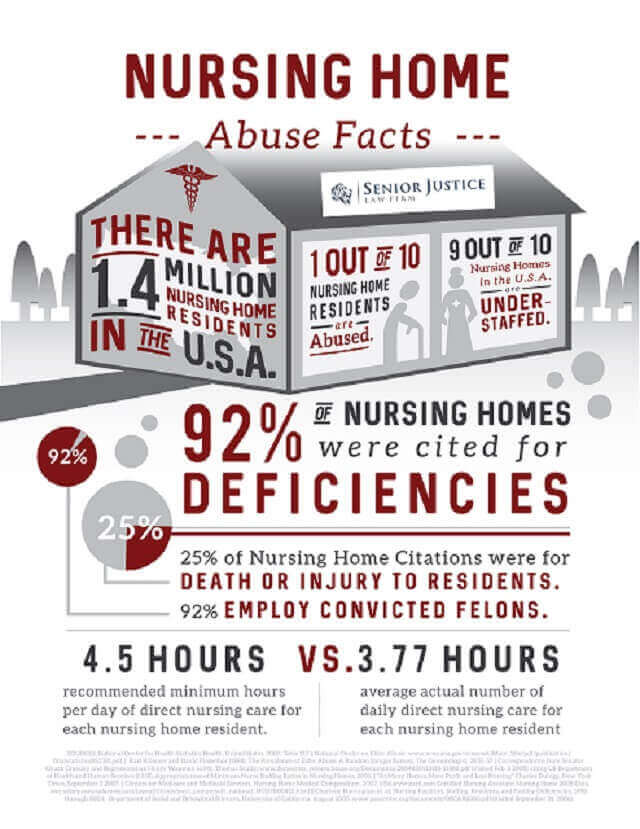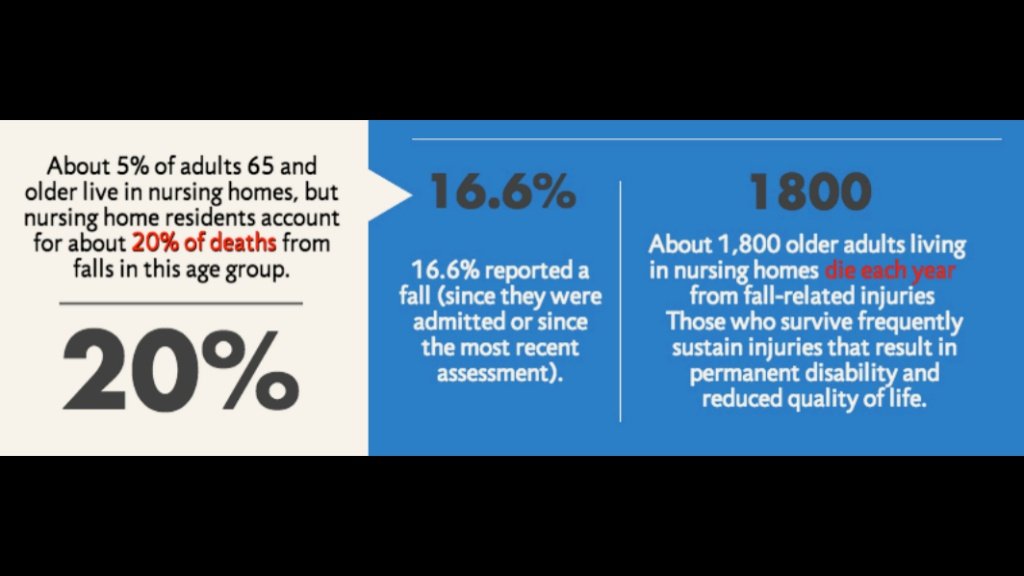Nursing Home Survival Guide
Tips to Survive a Nursing Home Residency and Avoid Injury or Wrongful Death
No one wants to put their loved one in a nursing home. Unfortunately, sometimes our family member’s underlying health conditions require they receive 24 hour nursing care. This usually means placement inside a nursing home or rehab facility. Most nursing homes have two wings; one for long term residents and one for short term, rehabilitation residents. Regardless of whether your loved one is only in the nursing home for a short period of weeks, or if they are a long-term resident, following these nursing home survival tips will help minimize their risk of injury or death.
1. Pick The Best Nursing Home Facility
Be wary of social workers trying to sell you on a certain nursing home. Make sure to do your own online research from an independent source. I prefer using Medicare.gov‘s Nursing Home Compare site, which compares nursing home safety ratings based on government inspections and deficiencies.
2. Make a Best Friend That Works at the Nursing Home
Find an employee at the facility who works there full-time that you like. Make this person your liaison and contact for any and all questions you have about your family member’s care. This can be the social worker, director of nursing or administrator. The point is to limit your communications to one person. This ensures personal accountability for action. Most nursing homes in the U.S. are chronically understaffed. If you speak with lots of different employees about something, it allows for them to ‘kick the can’ and pass responsibility onto someone else.
3. Visit Often and at Unexpected Times
Sadly, nursing home staff are overworked and underpaid. They can be complacent in their care, leading to nursing home negligence. Nurses do not want family members to complain about their performance, so they typically take better care of residents who receive visitors. Do not show up every Tuesday at 8 AM. Appear at random times and let staff know you are there. This will keep nurses on their toes.
4. Learn About Shift Changes
Not all nurses are created equal. Some nurses care, while others look at their job as a paycheck. Learn the nursing home staff shifts. These are usually morning, evening and night shifts. This means your family member will have entirely different teams of caretakers three times a day. Evaluate each shift’s performance and if you notice consistent problems with a shift, let your nursing home contact know immediately.
5. If You Suspect Neglect, Say Something!
If you notice your loved one is consistently dirty following the night shift, make sure to tell the D.O.N. or Administrator. You may feel afraid to ‘rock the boat’ and report complaints. However, in a nursing home, the squeaky wheel gets the grease. If you do not complain, the nursing home neglect will likely go undiscovered. Better to report it before a serious injury occurs.
6. Attend Care Plan Meetings at the Nursing Home
Care plan meetings are an excellent way for you to learn about your loved one’s health condition. These meetings are also a good venue to voice concerns to management about the care your family member recieves. Care plan meetings are usually called by the facility quarterly or when a significant change in condition occurs. However, if you want to have a sit down meeting with the head of nursing and various therapists, you are entitled to request a care plan meeting.
7. Maintain an Independent Patient Advocate
You will likely be assigned a doctor by the nursing home. Although this physician is not an employee of the nursing home, he or she is very much affiliated with the facility. I would recommend you maintain your own, independent patient advocate. Try to keep your prior primary care physician on your loved one’s case. If that is not an option, look into hiring a Geriatric Care Manager (a neutral nurse who comes into the facility, inspects your loved one and takes part in your loved one’s care planning). Using a GCM lightens your load and provides and expert set of eyes to ensure your family member is truly getting what they need inside the facility.
8. Report Nursing Home Abuse Immediately
Nursing home abuse takes many forms. It is not only intentional, physical attacks on resident. Nursing home abuse is also defined as the neglect of a resident, withholding care needed by the vulnerable patient. If you believe your loved one was injured inside the nursing home, call 911 immediately and get them to a hospital. Once safely under the appropriate medical attention, report the nursing home abuse to your proper state agency.

How Can I Spot Nursing Home Abuse Injuries?

Being a patient advocate means empowering yourself with knowledge. Learn the signs of nursing home abuse before they occur. The following are indicators of nursing home abuse and should be investigated immediately:
- Significant Weight Loss of 10%+ Body Weight
- Falls Resulting in Fractures
- Unexplained Broken Bones
- Bed Sores (Pressure Ulcers)
- Unexpected Wrongful Death
- Sexual Assaults
Justice for Seniors: Our Firm’s Mission
At Senior Justice Law Firm, our #1 priority is protecting patients in nursing homes and long-term care facilities. Hopefully, your family member survives their nursing home residency without significant incident or injury. If you have the unfortunate reality of dealing with a wrongful death or injury inside a nursing home, our knowledgeable and compassionate nursing home abuse attorneys are here to help you. Call us toll-free for your free nursing home injury case consultation now at 1-844-253-8919.


